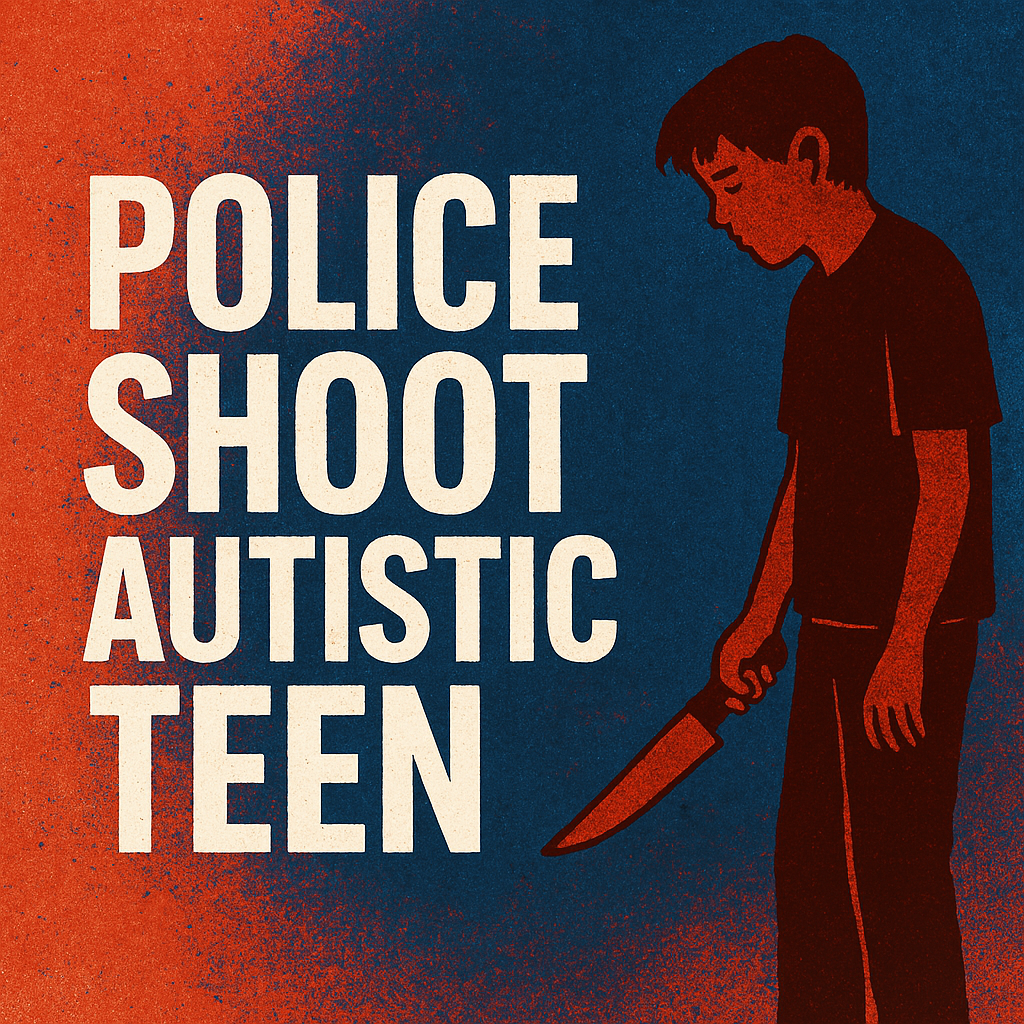
On April 5, 2025, a devastating event unfolded in Pocatello, Idaho, where 17-year-old Victor Perez, an autistic teen with cerebral palsy, was shot by police officers during a domestic disturbance. This tragic incident has sparked widespread outrage and calls for police reform across the United States, particularly in how law enforcement interacts with individuals with disabilities. The shooting has become a focal point in the ongoing conversation about police use of force, mental health crisis responses, and the need for better training.
The Incident: A Rapid Response with Fatal Consequences
The incident occurred when police officers responded to a call about a domestic disturbance involving an individual allegedly holding a knife. Upon arrival, officers encountered Victor Perez, who was reportedly holding a kitchen knife. Within seconds of making contact, officers opened fire, striking Victor multiple times. The encounter lasted mere moments but ended with devastating consequences.
Victor, who was non-verbal due to his autism, was immediately rushed to the hospital, where he underwent several surgeries, including a leg amputation. Despite the medical team’s best efforts, Victor remained in critical condition and was later taken off life support, passing away shortly thereafter. His tragic death has left his family in mourning and ignited a nationwide conversation on how police handle situations involving individuals with disabilities.
A Call for Police Accountability: Public Outrage and Demands for Justice
The shooting has led to significant public outcry, with many questioning the use of lethal force in a situation involving a young person with disabilities. Advocates for disability rights, as well as mental health experts, have raised concerns that police officers did not properly assess the situation or take into account Victor’s autism. His inability to follow commands may have been misinterpreted as defiance, rather than a reaction to stress or confusion.
Victor’s family and local community have called for justice and greater transparency regarding the police response. Disability rights groups have highlighted the need for specialized training to help officers recognize when they are dealing with someone who may not understand commands or the potential danger they are in.
Why Training on Disability and Crisis Intervention is Critical
This incident underscores a critical issue in U.S. law enforcement: police training is often inadequate when it comes to handling individuals in crisis, especially those with disabilities. According to experts, there is an urgent need for officers to receive crisis intervention training (CIT) that includes strategies for de-escalating situations involving individuals with autism, mental health disorders, and other conditions.
Training programs focused on crisis communication and non-lethal de-escalation techniques are essential. Law enforcement agencies across the nation must take a proactive approach to ensure that officers are equipped with the skills needed to handle vulnerable populations.
What Could Have Been Done Differently?
While we may never know for sure what could have prevented Victor’s tragic death, many experts believe the situation could have been handled differently. First responders should have recognized the signs of autism and approached the situation with more caution and care. Non-lethal methods of subduing individuals, such as using Tasers, could have been employed as an alternative to deadly force.
Moreover, crisis specialists or trained mental health professionals could have played a pivotal role in diffusing the situation. Experts agree that when dealing with individuals who have autism, police officers should employ communication strategies that are adapted to the person’s needs.
The Role of Reform in Preventing Future Tragedies
The Perez family, along with advocates for disability rights and police reform, is calling for more than just an investigation into the shooting. They are demanding widespread reforms to prevent future incidents like this. These reforms should include:
- Crisis intervention training for law enforcement officers to help them identify and handle situations involving individuals with disabilities and mental health challenges.
- A greater emphasis on non-lethal responses in situations that could be safely de-escalated without the use of deadly force.
- Improved communication strategies that take into account the unique challenges of individuals with autism, cerebral palsy, and other disabilities.
Public pressure is growing to make these changes, and communities across the United States are rallying behind calls for justice for Victor Perez and accountability for the police officers involved.
A Family’s Fight for Justice
In the wake of Victor’s death, his family has taken action. They have launched a petition and a GoFundMe campaign to raise awareness about the incident and seek financial support for legal fees. The Perez family is committed to ensuring that their son’s death is not in vain and is advocating for police reform that will protect individuals with disabilities in the future.
Victor’s death has brought to light an urgent need for reform, and the Perez family is calling for an independent review of the incident. This case has become a rallying point for disability rights activists, who are pushing for legislative changes and greater accountability for law enforcement agencies.
What Can Be Done to Prevent Future Police Violence?
The tragic shooting of Victor Perez is a painful reminder of the flaws in our system of policing. But it can also serve as a call to action to ensure such a tragedy is never repeated. Police departments across the country must implement reforms, particularly around interactions with vulnerable individuals, and equip officers with the skills necessary to handle complex situations with empathy and caution.
The Perez case underscores the need for broader reforms in U.S. law enforcement, including changes in police practices and training. By advocating for change and accountability, we can work to create a safer environment for everyone, particularly individuals with disabilities who may be disproportionately affected by police violence.